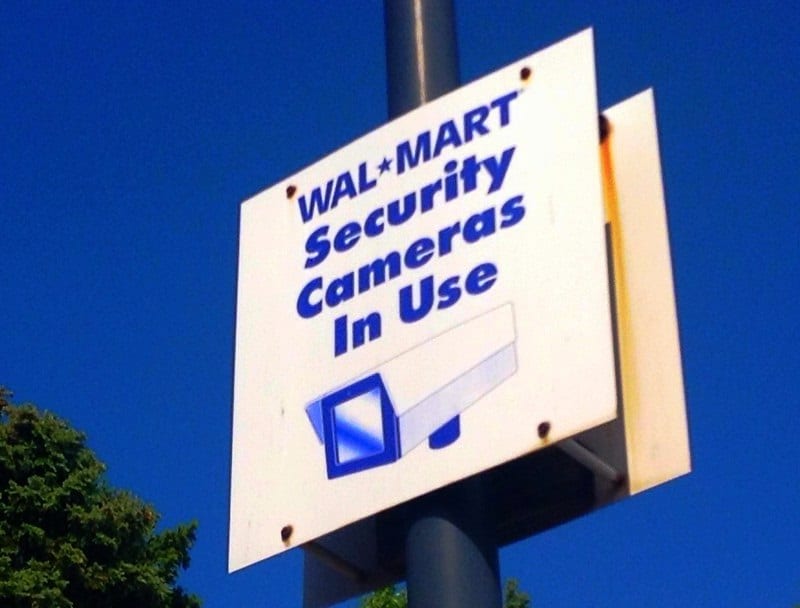
Shoppers looking for deals may not be able to find any soon, thanks to those who are determined to get the ultimate deal – in the form of a five-finger discount.
If conditions weren’t already challenging enough, with inflation making just about everything more expensive, the world’s largest retailer warns that it could get worse.
“Theft is an issue. It’s higher than what it has historically been,” Walmart CEO Doug McMillon told CNBC this week. “If that’s not corrected over time, prices will be higher, and/or stores will close.”
It’s a drastic solution, to a growing problem. “We know we’re not alone across retail in seeing a trend that I think has gotten increasingly worse over the last 12 to 18 months,” Target Chief Financial Officer Michael Fiddelke told investors last month. So far this year, he said the retailer had lost more than $400 million to theft, and estimated that would grow to more than $600 million before the year is out.
While shoppers slipping something into their pocket, or “forgetting” to scan an item at self-checkout, has always been a problem, the losses lately point to far more coordinated and sophisticated schemes. “This is primarily driven by organized crime,” Target Chief Operating Officer John Mulligan said. “This is an industry-wide problem that is often driven by criminal networks,” Fiddelke added, “and we are collaborating with multiple stakeholders to find industry-wide solutions.”
The National Retail Federation recently issued its latest annual Retail Security Survey, in which it found that retail theft has become “an almost $100 billion problem.” On average, retailers reported a 26.5% increase in organized retail theft incidents over the past year. While three-quarters of retailers surveyed said their main focus was outright theft – people taking items and walking out of the store without paying – about half of retailers were also increasing efforts to fight coupon fraud, and the growing problem of gift card fraud.
“Gift cards are convenient for both retailers and customers,” the NRF report read. “However, they are often abused or involved in organized retail crimes.” Criminals “often steal merchandise and then return the merchandise as if it had been purchased.” When they’re reimbursed in the form of a gift card, “these offenders will convert the store credit to cash on secondary markets.”
Combating these problems is not something retailers say they can handle alone. “We’ve got safety measures, security measures that we’ve put in place by store location,” Walmart’s McMillon said. But “local law enforcement being staffed and being a good partner is part of that equation.”
“There is a role for us to work as a retail group with law enforcement, with the government, to help find solutions,” Target’s Mulligan said. “Because stolen goods are often sold online,” Fiddelke added, “Target strongly supports the passage of legislation to increase accountability and prevent criminals from selling stolen goods through online marketplaces.”
In the meantime, retailers are doing what they can to prevent theft on their own. Big Lots says it’s put anti-theft tags on all items in its apparel department, which has been experiencing a high rate of theft. Plus, “we’ve rolled out a wheel-locking system at a number of stores, which essentially prevents the carts from being pushed out,” Chief Financial Officer Jonathan Ramsden said earlier this year. “We’re going to be accelerating that now in light of what we’re seeing.”
Other stores are putting more high-value items in locked cases. And the Rite Aid drug store chain says it may accelerate those efforts in high-theft areas. “We’re looking at literally putting everything behind showcases to ensure the product is there for customers who want to buy it,” Chief Retail Officer Andre Persaud told investors earlier this year. “We’ve even had to go to the extent of using off-duty police officers in some of our stores.”
Such initiatives are “obviously not something we like to do,” Mulligan said. “It’s far less convenient for guests as they shop our stores.” But it’s becoming necessary, the Target executive said, “and you can see us continue to do that.”
Target, for one, is well aware of the various methods of retail theft, all of which were embodied in one prominent case that involved theft, coupon fraud, return fraud, gift card fraud and online reselling all in one. A California man and numerous accused accomplices were charged with defrauding Target out of millions of dollars, by allegedly misusing coupons, racking up large balances on gift cards, then reselling their stolen goods and the gift cards online. But the case fell apart earlier this year on a technicality – so no one was held responsible, and Target is on the hook for the millions of dollars in losses caused by this case alone.
As a result, it may be forced to make its customers pay higher prices, to make up for its customers who paid nothing at all.
Couponers have long lamented that those who misuse coupons are only ruining it for everyone else. And with the availability and attractiveness of coupons declining in recent years, that lament seems to be coming true. Shoppers who are already pinched by higher prices can only hope retailers’ warnings about heftier price tags and more closed stores won’t come true as well.
Image source: JeepersMedia











Place one employee by each entry. Anyone attempting to exit without paperwork showing that they paid for the items is stopped and prevented from leaving.
Problem solved!
That way you punish only those who are causing the problem, not everyone else (by charging more for things to those who actually pay for them!).
Yeah, we know how well that is working now. People go into a tizzy if asked to show their receipt.
If you didn’t do anything wrong, what’s the big deal? Only those up to no good should be getting loud and vocal since they are guilty.
is there a list of stores who double coupons? So far I have Giant, Safeway, Martins, Stop n Shop, Harris Teeter, Wegmans. I am sure there are more.